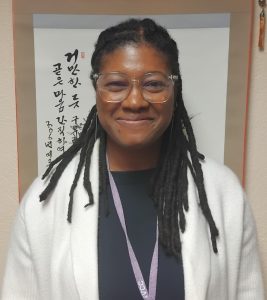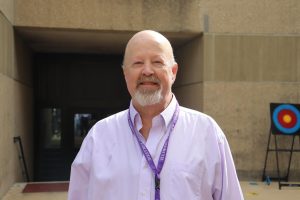IVCC professors discuss African American women scholars
April 7, 2022
The contributions of African American women scholars were discussed by a panel of Illinois Valley Community College professors through Zoom on Wednesday, March 30 as part of Women’s History Month. Participants included Amanda Cook Fesperman, Jared Olesen, Sue Caley Opsal, Kimberly Radek-Hall, and Delores Robinson.
The panelists explained how each scholar expanded academia and society during the hour-long event open to the community. The women featured made great strides toward innovation, diversity, equity, and inclusion through their work in education, social justice, and life.
Caley Opsal introduced Kizzmekia Corbett, a pioneer in science, who earned her doctorate in microbiology and immunology before becoming the scientific lead for the COVID-19 vaccines as well as the immunopathogenesis team at the National Institutes of Health.
“She is just a whirlwind and she will go down in history for how quickly and rapidly they developed that vaccine,” stated Caley Opsal. “She spent the whole weekend in the lab designing that vaccine and has since then been responsible for saving tens of thousands, if not hundreds of thousands, of lives across the globe.”
Additionally, Caley Opsal described Corbett as a great mentor for science students.
Authors bell hooks and Roxane Gay were discussed as well for their commentary on social issues especially regarding feminism. Cook Fesperman detailed hooks to be an adherent to critical theory whose writings encouraged a new wave of feminist thought.
“One of the big criticisms that third wave feminists levy against second wave feminists is their lack of inclusivity,” said Cook Fesperman. “Largely focusing on white women, white women’s issues, and white women’s perspectives. So, when bell hooks came of age in this time period, she was one of the first people to not only see this, but name this.”
Robinson pointed out how Gay has achieved widespread acknowledgement for her work as well as how all individuals have intersections in their lives.“
Roxane Gay comes along and says there are no categories,” explained Robinson. “Everybody’s individual lived experiences are such that you know you can’t box people in like that just as you can’t box her in as only a woman of color or only an academic or only a feminist.”
Furthermore, Robinson emphasized Gay’s belief that there is no essential feminist and characterized her writings as accessible as she engages with popular culture often.
Olesen elaborated on the work of Barbara Fields and how he believes she draws heavily on the insights of critical race theory and explores the relationship between the act of racism and the idea or ideology of race.
Moreover, Radek-Hall examined sociologist Patricia Hill Collins and judge and law professor Kimberlé Crenshaw as well as their work in intersectionality while leading into a discussion on critical race theory and academic freedom.
The six African American women scholars were discussed in detail regarding their contributions to academia and society to celebrate Women’s History Month at IVCC.



